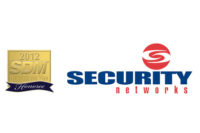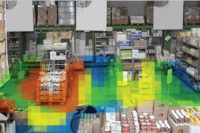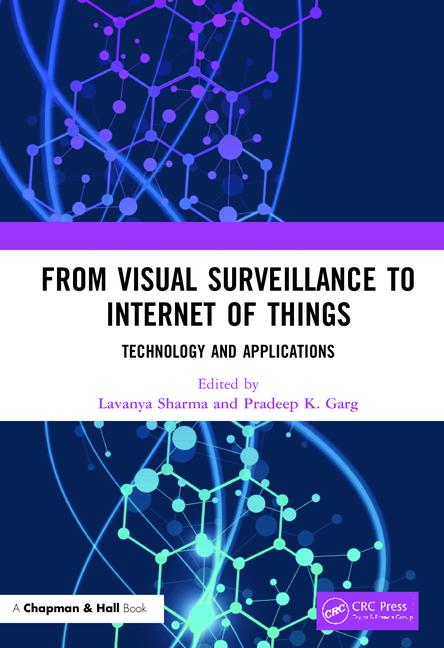There is value in reliability. There is value in new technologies. There is value in services that make life easier. There is value in quality customer service. There is a whole list of ways that Security Networks, West Palm Beach, Fla., continues to provide value for its affiliate dealers and the end users the affiliates serve.
“Security Networks is built on a spirit of partnership. What resonates with our affiliates is that we wake up every day figuring out how we are going to help them grow their business and support them, and we’re equally committed to helping them create long-term customers. In the security industry, we invest a lot of money in every new customer we create, so we are invested in keeping that customer as long as we can. Value-added services give our affiliates more features and benefits to talk about, creating new sales, while the same services also create long-term customers who value their systems,” says Richard Perry, president of Security Networks.
The focus is working. Security Networks continues to grow year in and year out. In 2011, its revenue increased 28 percent and its recurring monthly revenue (RMR) climbed 44 percent. Those are notable numbers in this economy. The numbers don’t surprise Perry. Security Networks has been steadily growing the last five years.
“Our compound annual growth over the last five years has been about 40 percent, and we hope 2012 will continue on that same curve,” Perry comments. Once again, the value add plays a role.
“With value-added services, we’ve seen RMR per customer notably increase,” Perry says. “The average customer revenue is up to $40 whereas it used to be in the mid $30s. A lot of that is due to cellular and interactive services.”
This year, Security Networks launched iNet, its suite of interactive services designed to keep the customer connected whether they are home or away. The suite of services includes: interactive control giving the customer the ability to interact with their system remotely as well as get text messages and email notifications of any system event; energy management allowing the customers to customize their energy usage; home automation allowing the customer to control and automate lights and locks; a video monitoring application to view video through a smartphone and any other Internet-enabled device.
That new suite of interactive services is in addition to many other value adds such as the WeatherNet Personalized Forecast Service, a 90-day free trial offer of IDnet (identity protection by InfoArmor), a Customer Move Certificate guaranteeing that if a customer moves a Security Networks Authorized Affiliate will move the customer’s Security Networks security system at no charge, a Lifetime Service Warranty, a Theft Protection Guarantee, and a False Alarm Protection Guarantee that protects end users against false alarm fines that result from equipment malfunction, to name a few.
New and evolving technologies are happening regularly in the security industry, but not everything can or should be a new service or a value add. Security Networks carefully evaluates new technologies based on several factors, including the viability of the technology, projected customer demand (market size), financial strength of the technology provider (source), and projected profitability upon deployment.
“This is an exciting time to be in the alarm business,” Perry shares. “I’ve been doing it 20 years and I’ve seen a lot of change. This is the most exciting time primarily because of the new technologies. Alarm systems previously have been mainly a passive device offering one service to a customer just hanging the wall unless you have a break-in. Today, alarm systems are becoming more interactive — thermostats, locks, lights, HVAC controls, and more — morphing alarm systems into a product that the customer interacts with every day and controls with their smart devices. Security Networks management constantly looks for best-in-class equipment and support to offer solutions that enhance our affiliates’ efforts outside of traditional alarm monitoring,” he adds.
Market Approach
Security Networks approaches the market in three ways. It operates a wholesale monitoring center where it services approximately 80 wholesale dealers representing more than 24,000 accounts. Additionally, its acquisitions group seeks out bulk purchases and fold-in acquisitions that fit into its growth strategy. And finally, the cornerstone of its business model is its affiliate program, in which it purchases accounts on an ongoing basis from its 180-plus active affiliates.
In 2011, the company was able to dramatically expand its footprint with growth coming exclusively through its affiliate program. The company purposely avoided bulk acquisitions this year in order to focus on the affiliate program, which is growing “dramatically,” according to the company. The November 2010 acquisition by Oak Hill Capital provided the strength for Security Network’s affiliate funding program to expand to the West Coast of the United States and into Puerto Rico, adding authorized affiliates in Arizona, California, Colorado, Idaho, Kansas, Missouri, Nevada, Utah, and Washington, as well as thousands more valued customers.
The rapid growth of its affiliate program created the challenge of successfully managing all the data and processes associated with adding several thousand new customers each month. Security Networks’ management planned for this growth, and in 2009 rolled out an internally designed, proprietary, Web-based management information system called Affiliate Services Information System (ASIS). ASIS is a platform that allows the affiliate to on-board new customers instantly, from the field or their office. ASIS also provides Security Networks with vital information about the customers beginning at the point of sale, which allows it to offer the customer the optimal experience from day one.
“ASIS is our platform that helps us run our business, but also helps our affiliate run theirs. Every element of what they do every day and what we do every day is managed though ASIS. There is no end in sight to what we can do with it,” Perry says.
And there seems to be no end in sight to where Security Networks can go with its unique model and its attention to detail — especially the value adds that go so far with today’s end users and Security Networks’ affiliates.
“We didn’t invent the dealer model, but we like to think we perfected it,” Perry says. “We have built a track record over the past five years with the affiliate dealer world that we do what we say we are going to do.” That includes finding and adding value in every way possible. n
Editor’s Note: For more on Security Networks’ approach to mastering the value add — both for end users and within the industry — listen to a podcast with Rich Perry, president and CEO of Security Networks, as he discusses “The ‘Mandatory’ Value Add” on www.sdmmag.com.
| Community Involvement: The Narcotics Overdose Prevention & Education (NOPE) Task Force |
| The Narcotics Overdose Prevention & Education (NOPE) Task Force. NOPE is a non-profit organization that was formed in Palm Beach County, Fla. in 2004 to combat the illegal use of prescription drugs and narcotics, as well as other abused substances. The organization is dedicated to narcotic overdose prevention and education, and it delivers high-impact presentations to middle and high school students throughout Florida and beyond. Karen Perry is the organization’s executive director, and many of Security Networks’ staff have contributed time and energy to NOPE. Security Networks donates office space to NOPE and is a major financial contributor. NOPE has been featured on the CBS Morning Show, Ladies Home Journal, AARP Magazine, and is endorsed by the Florida Police Chiefs, Department of Children and Families, and Office of Drug Control. |









